

Situated behind the delightful fishing village of Santa Luzia, Tamar Welti’s farm, Quinta Pomar, is teeming with life and biodiversity. In this article, Tamar shares with us the workings, joys and challenges of running an organic farm, along with her dreams for the future.
“I want to make buying organic affordable and less elitist”
- Can you tell us about your background and what drew you to live in the Algarve, Portugal?
“I was born in Israel to an Israeli mother and Swiss father. My parents left Israel when I was 2 years old and we went to live in London. In 1992 I was offered a job to look after a house in Santa Luzia for two seasons. I soon realised that I felt most at home here. I loved to cycle around and look for old ruins with a dream to build them up – and that’s how I found this place. It had been vacant for 30 years, with no electricity, water or roofing. I did it up with friends and lived here for 6 years before my father bought it. Over time, we built up the other properties and then, by a stroke of luck, we got the next-door farm, Quinta Pomar, at a very cheap price.”
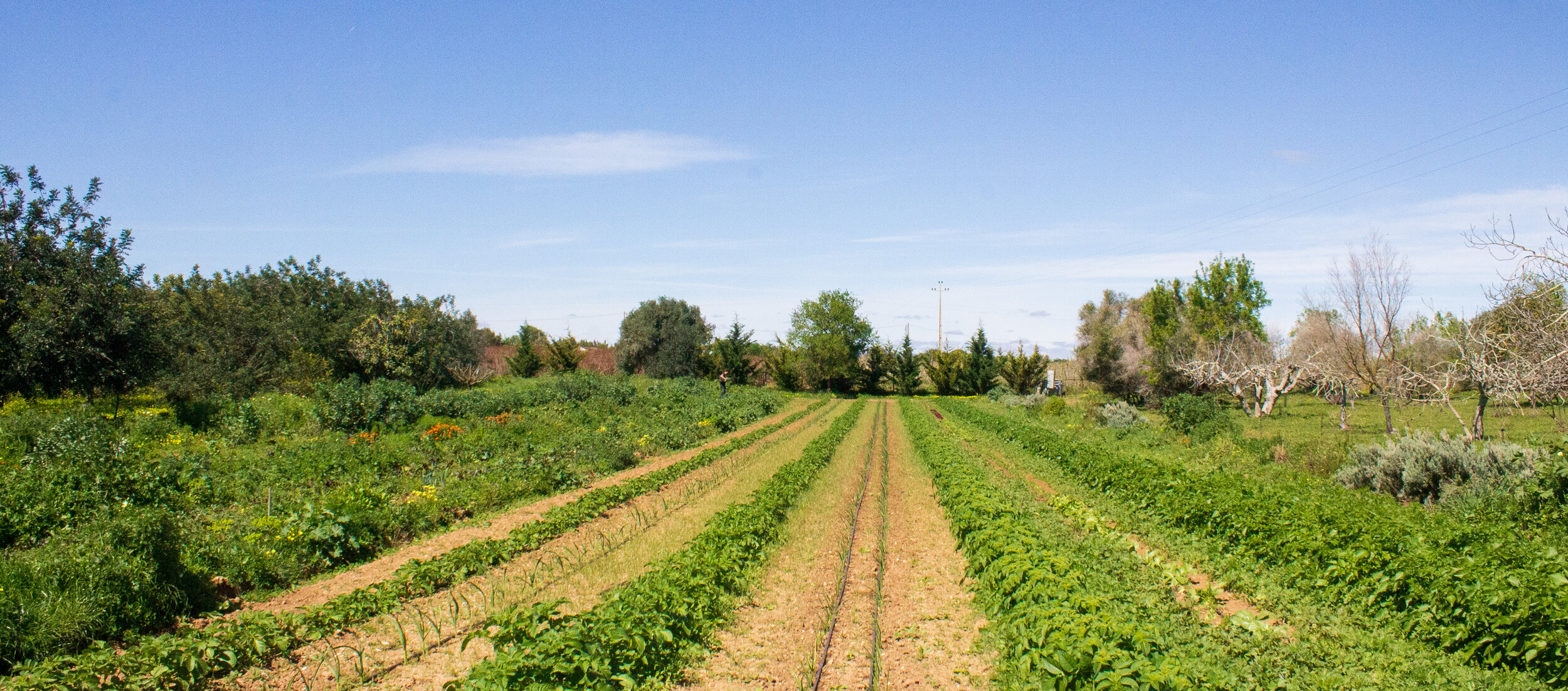
- How did you start your organic farm production at Quintamar and why didn’t you choose conventional farming?
“About 6 years ago we started farming. It was amazing to have so much fertile land, cheap water and the opportunity to grow all year round. It just made sense to do it organically. I wasn’t someone that always bought organic, mainly because I thought it was over-priced and there weren’t a lot of options here anyway. So, I wanted to make it affordable and less elitist. I wanted to run a small cooperative of organic farmers and sell our vegetables, which was how the market stall in Tavira started.”
- Are there any examples where conventional farming might be the best option?
“It would’ve been more profitable because organic farming is labour-intensive and risky, but it’s not interesting. In the same way, I wouldn’t want to grow a monocrop. The whole idea of the organic farm connects so well with what I’ve already got set up with Quintamar and the eco-tourism.”
- What are you harvesting this spring?
“Broad beans, peas, spinach, chard, potatoes, spring onion, onion, cabbage, cauliflower, broccoli, citrus, kohlrabi, fennel, beetroot, radishes, black radishes, rocket and lots of herbs…”
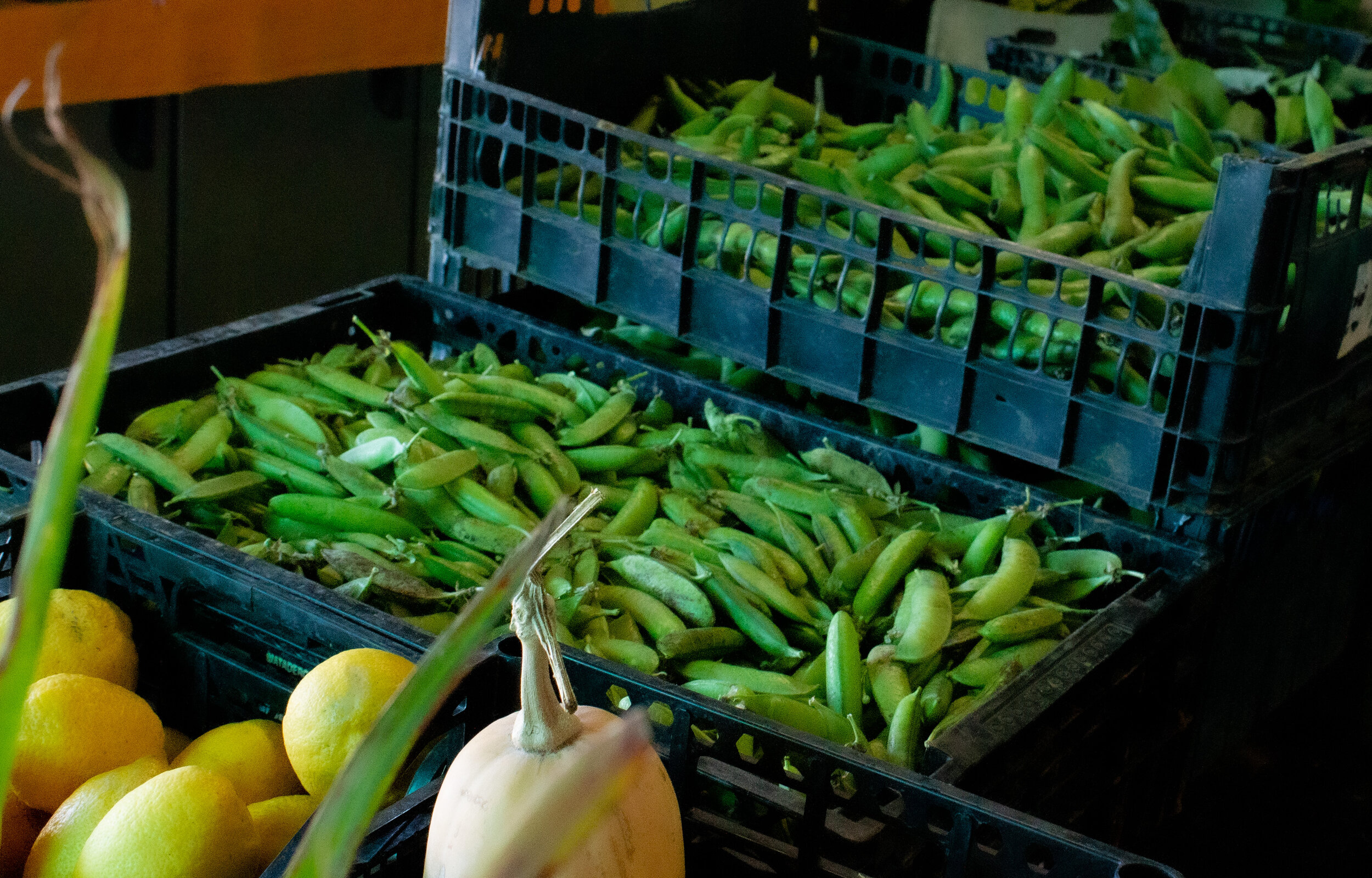
- How and where do you sell your produce?
“Currently we sell just once a week in the Tavira market on Saturdays, before COVID it was 3 times. That’s why I started the weekly vegetable boxes, which has been great. In the beginning, it was about 30 boxes per week, which was quite an operation. I couldn’t have volunteers at the time because of the lockdown, so lots of friends came to help out and it was a great opportunity for them to get out of the house. We would all eat together; it was a lovely social thing. They got vegetables in return for their help – it’s funny, it resonates with me as my Mum’s side of the family comes from a Kibbutz where there’s this sense of harvesting, combining efforts, resources and sharing. It’s something that’s always appealed to me. Other locals sell their products with the boxes too – like ghee, honey and bread – it’s lovely to have more variety and connect people.”
- What are some of the challenges you face as an organic farm?
“Recently, there has been more competition, but it’s healthy – there’s enough demand for organics for us all to do well, although I think it’s a shame that we don’t collaborate more. Getting certification is a challenge as it’s expensive. Sometimes it seems like another bureaucratic way of making money and it creates this elitism as you then have to charge more for your vegetables. My farm is organic, and you can come and see for yourself, but I don’t want to go through the certification process for that reason.”
- What makes you happiest about the nature you live in?
“The climate, the animals and the fact that the land is so fertile!”
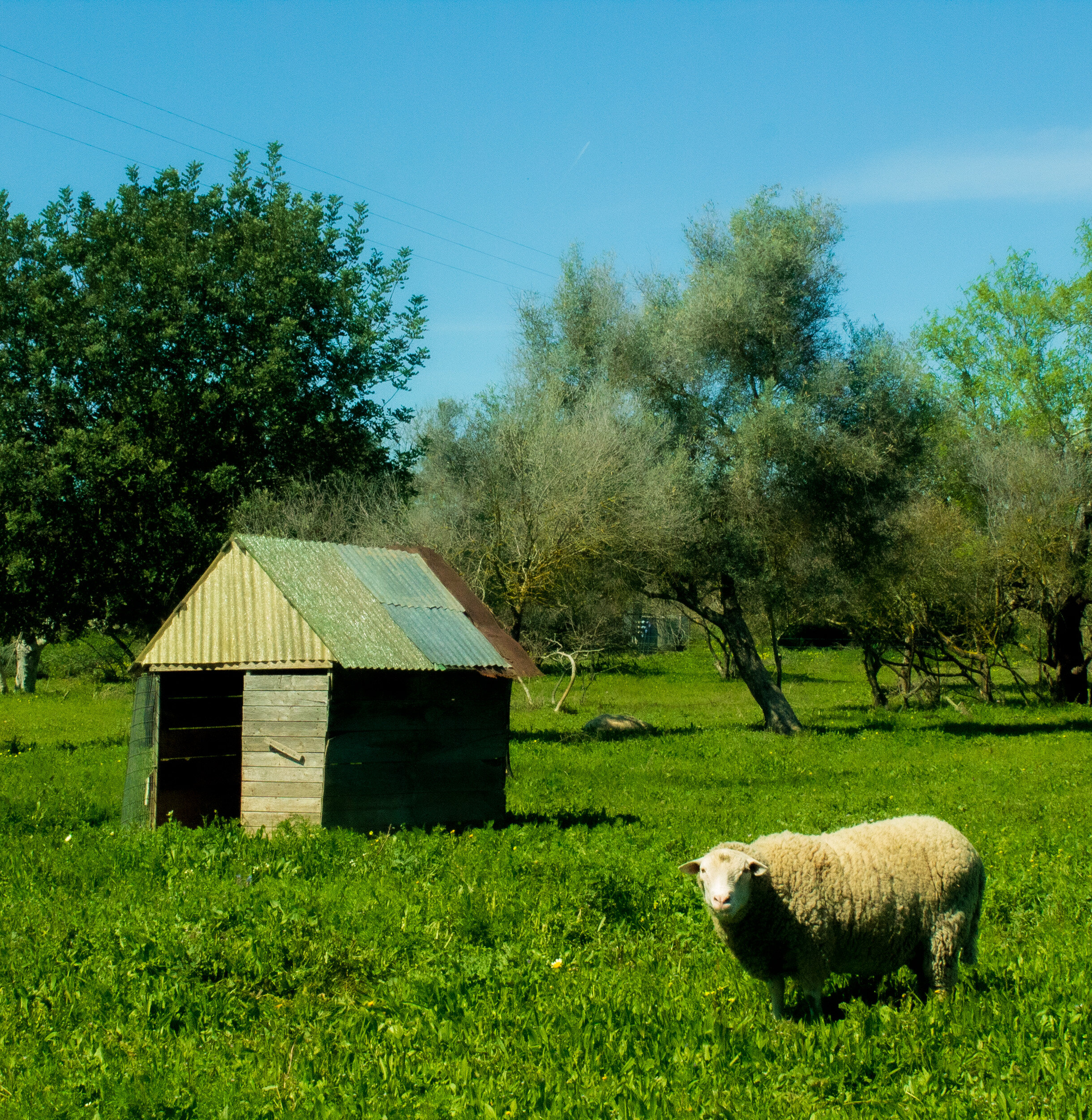
- Can you tell us about volunteering at Quintamar?
“Sure. Volunteers mostly come from WWOOF or Workaway. WWOOF is more organic farm specified and people are usually more interested in learning something. They do 5 days a week, 5 hours a day – in the mornings 8 am – 1 pm. I give them some money each week for food and supply them with the basics, then they can eat the surplus fruits and vegetables from the farm. There are a few options for sleeping – the two containers with an open kitchen/living area and in the summer, there are the old cottages and some people come with vans or camp. The volunteers spend 2 days harvesting, washing and preparing the fruits and vegetables for the market and 3 days weeding, planting, seeding, clearing and doing things with the animals.”
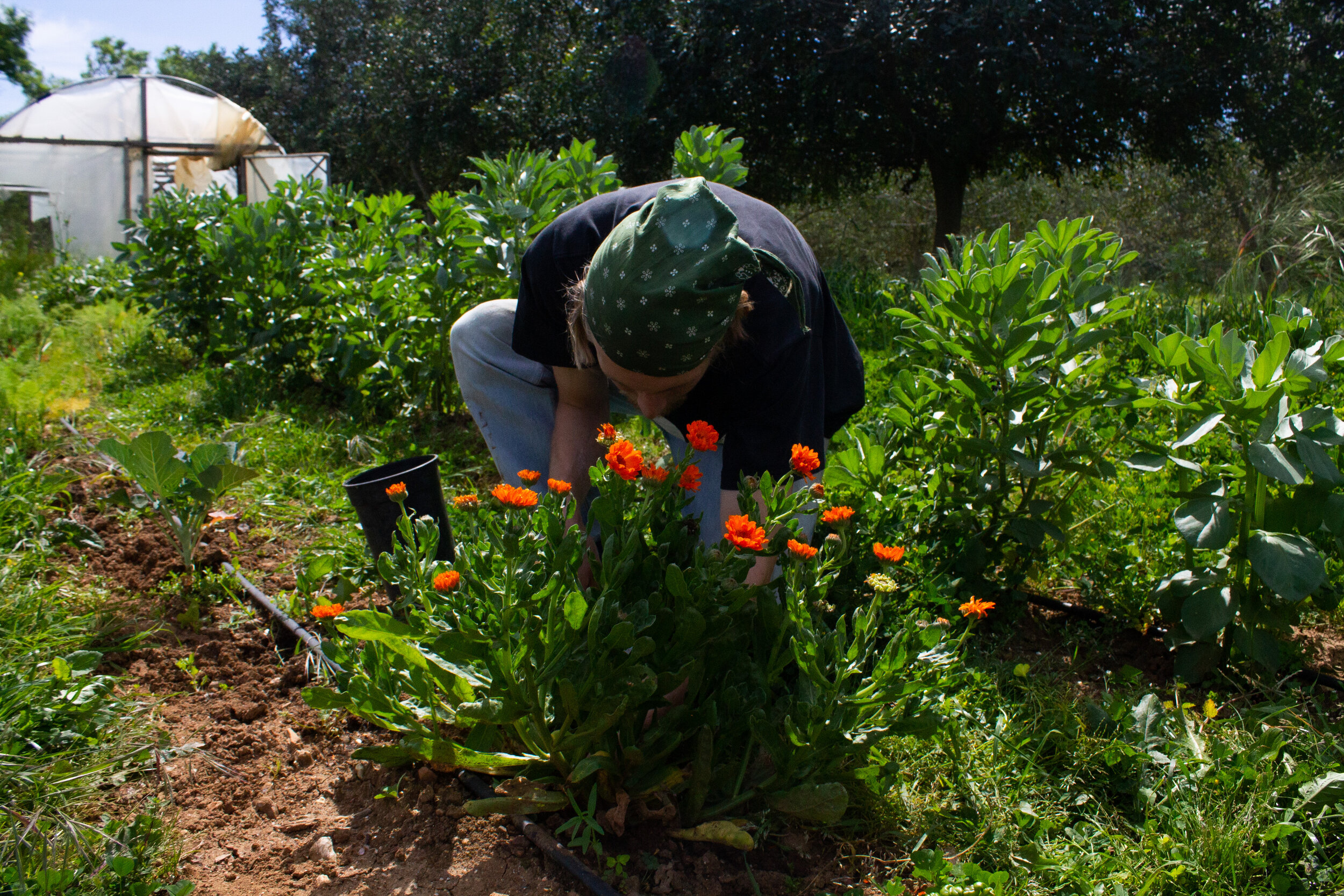
- And what about your business Jacaranda, can you tell us about it?
“I started Jacaranda 20 years ago with my friend Angie. We were doing it in a really good time as it was before people used booking sites and by word of mouth the business grew – at one stage, we were managing about 50 houses. Now, we’ve cut back to about 20 houses between three of us. For most of the houses, we offer a conventional stay. Here at Quintamar, I offer eco-tourism; there are animals, you can compost your food, there’s a natural pond to swim in, plenty of wildlife on the farm and many of the guests buy my vegetable boxes and eggs from the chickens.”
- How has COVID-19 affected your farm and business?
“Jacaranda has struggled, and the next few months will be very telling. With the farm, we’re down to the one market day, which is why I started with the vegetable boxes. We’ve also started this charity donation for the Algarve Network for Families in Need – each week I bring a surplus box to the charity in Tavira where they do all the shopping, distribute food and supplies for about 120 families in the area. We’ve appealed to the council to have a space and fridges in the local market for all of the organic produce to be stored. Donation money could be collected from customers and the charity can then buy from the local farmers, instead of from the big supermarkets.”
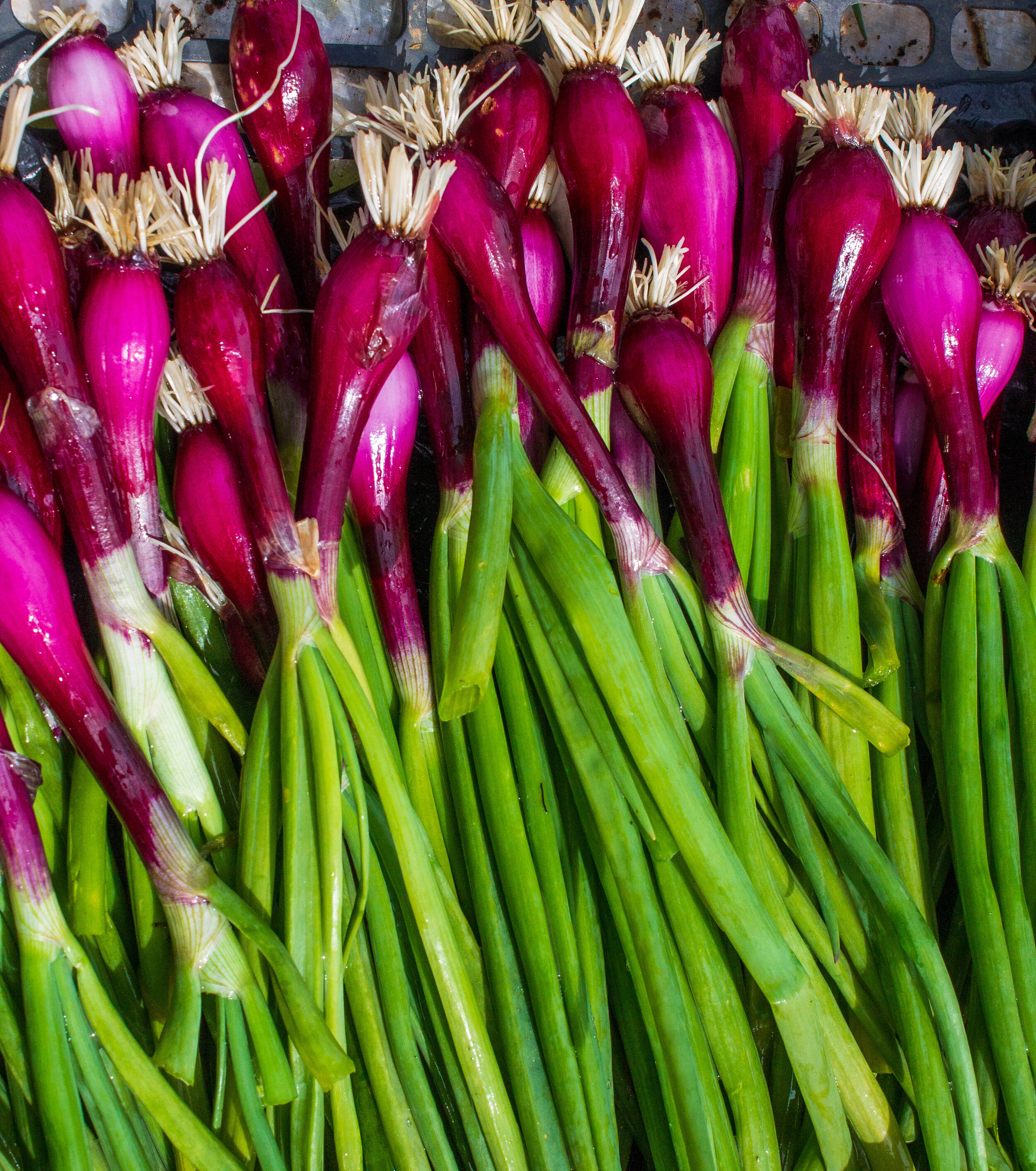
- What damage is climate change having on the region and how is it affecting farmers?
“This year we had a lot of rain – enough for the next 2 years to supply the Algarve. But in the last decade, at least, water has been an issue due to the large amounts used by avocado farms and golf courses. Because the agricultural water is so cheap to use, they put a lot of strain on the supply, which directly affects local farms.”
- Are you seeing a rising interest in people switching to growing and buying organic?
“Yes definitely. I think people have gradually realised the benefits of buying local and eating organic. Most smallholders and Portuguese locals have probably been doing it anyway without realising. In the 80s, there was a problem with pharmaceuticals and chemicals, which were distributed out to mostly illiterate farmers. These farmers didn’t know the correct measurements or how to apply the chemicals, so they unintentionally poisoned the land. On my farm, I can see where the land has been intensely farmed 30/40 years previous as it is still devastated. It will take another 10 years for it to be fertile again.”
- Do you have any future visions for Quintamar?
“I’ve been running the farm at a loss for 6 years, but I have this plan to turn our next-door farm into an agrotourism business - the umbrella that will tie it all in. I want to make it sustainable – for example, using the soil from the natural lake to build an authentic barn from rammed earth. The central part will be the canteen - a place for guests and to eat, along with a display of freshly made food for outside tourists. The kitchen could also be rented for catering events, weddings and parties. It mushrooms into all these other exciting possibilities. I like the idea of pop-up events – yoga, food, film shows and art exhibitions - all under the agrotourism concept. It’s the sense of collaboration that will be interesting – imagine all the amazing workshops and experiences people could bring from all over the world.”
- Finally, is there anything you would like to add?
“My plan B, if the agrotourism doesn’t work out, is to have more of a community-based living concept. If I have space and no regular tourism, I think we could make a longer-term arrangement for like-minded people who want to live together.”
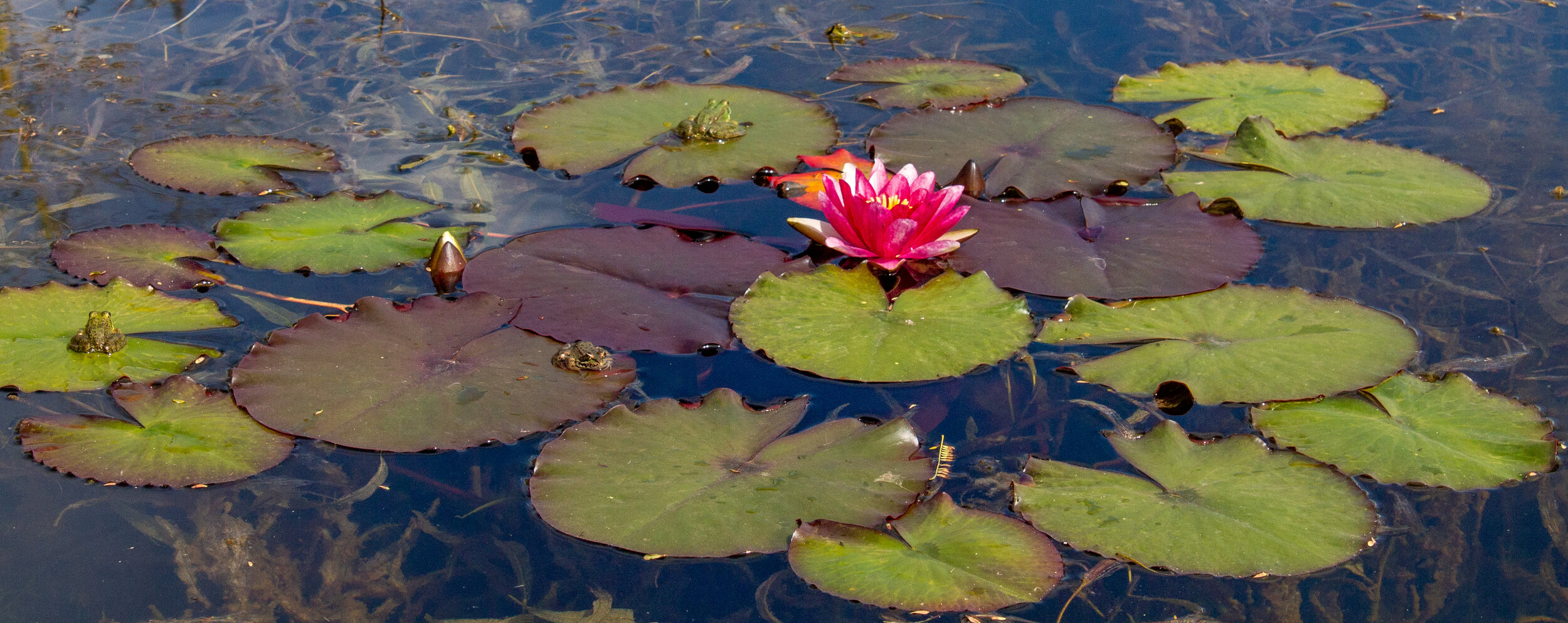

Interview conducted by Rosanna Pycraft, freelance journalist specializing in the cultural field. Rosanna is particularly fond of sustainable food, alternative music scenes and the arts. Currently living in Lisbon, she is passionate about the environment, ecotourism and travel in order to discover local histories and different cultures.
Posted on 2021-08-14 16:20








Comments